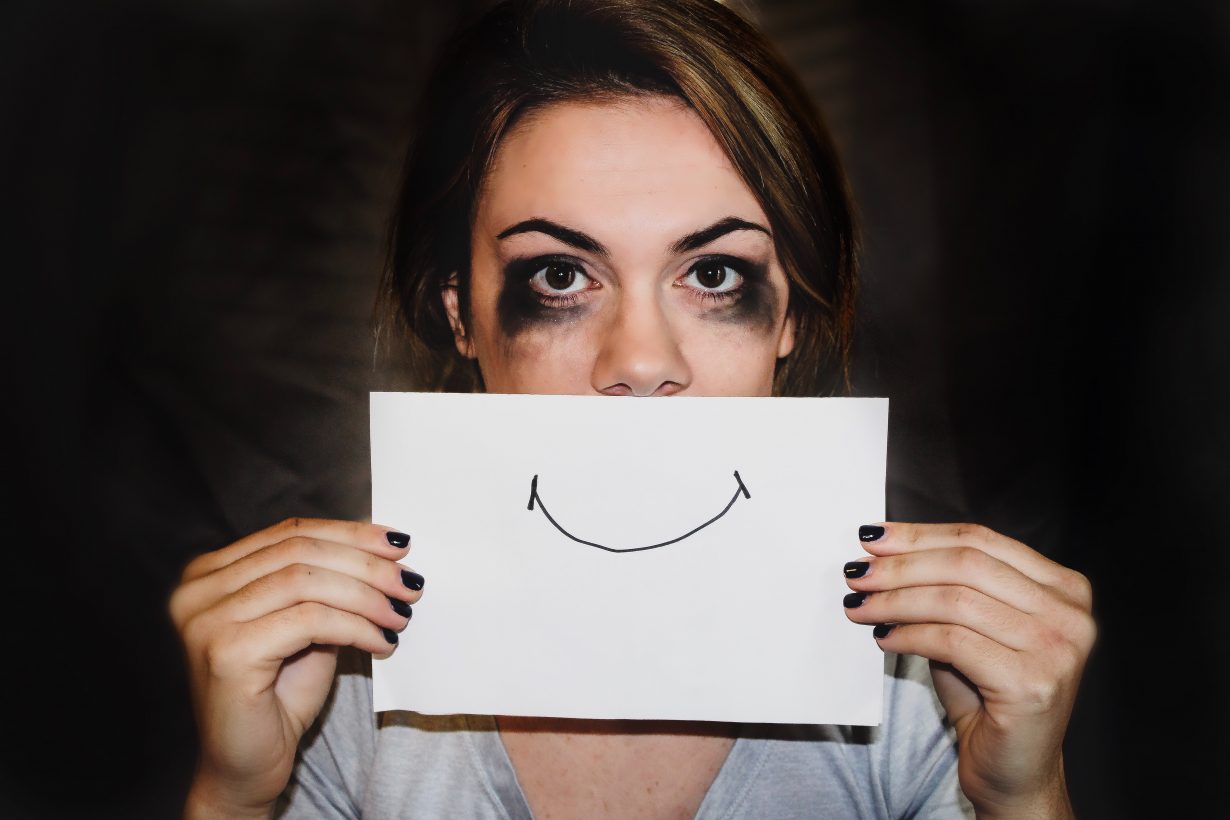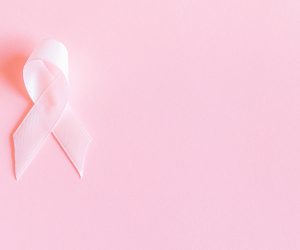
How to Recognize the Early Signs of Depression, How to Recover, and How to Help Someone Who is Struggling with Depression
Dr. Caroline Leaf – Depression is a mind issue: if you are conscious and breathing, you are at risk for depression, because, as a human being, you think and react to what happens in your life, which, in turn, affects your biology (i.e. the brain and body).
I am sure you know at least one person (or maybe you are that person) who is going through a rough time and feeling down. This is normal—we are not designed to be happy all the time, and sadness is part and parcel of everyday life: it is very normal for our feelings to ebb and flow.
But what happens when the sadness just doesn’t want to go away? What happens when you feel depressed all the time? How do you stop these emotions from affecting your ability to function or perform even the simplest of tasks? How can you help the people in your life who feel down and out?
In this week’s blog and podcast, I cover the topic of depression with my producer and daughter, Dominique: what it is and what it isn’t. We’ll discuss how you view yourself can contribute to depression, how to detect it early on, how to manage and recover from depression, how to help others who are going through a difficult time and so much more!
Of course, so many people are talking about depression these days, and what they are saying about it can be frightening. Some people claim that is a brain disease or chemical imbalance, while others say that it is just something that you just have to live with—you know, it is “in your genes”. In many cases, it is given as a label that can lock someone in: someone “is depressed”, which affects how they see and respond to their feelings, and how they react to those around them.
If you have followed me for a while, you know that I think depression is not just a biological malfunction or an incurable disease; rather, it is part of the human story. Depression is a mind issue: if you are conscious and breathing, you are at risk for depression, because, as a human being, you think and react to what happens in your life, which, in turn, affects your biology (i.e. the brain and body). Your mind, the core part of who you are, is processed through the brain and body; everything is connected!
The causes of depression can be multiple: chronic stress, trauma, biological illnesses, broken relationships, grief and so on. Depression is an emotional warning signal that something big is going on in your life, and that you need to face it and deal with it, kind of like how feeling ill after eating rotten food is a signal that something bad is going on in your digestive system and you need to get help. This will look different for everyone, but some common signs that you may be experiencing depression are:
• Feeling hopeless and helpless (like you just have nothing to live for and can’t go on)
• Loss of appetite and weight changes
• Irregular sleeping patterns
• Physical and mental exhaustion
• Self-loathing and low self-confidence
• Antipathy and loss of interest in day-to-day things
• Risky behaviors (such as drinking while driving)
• Physical issues such as headaches, skin problems, hair loss and digestive problems
• Trouble concentrating and slow processing
• Dramatic mood swings
• Intense anger and irritability
• Feelings of burnout
If you or someone you know are experiencing any or all of the above, what do you do? Is there any hope? As my daughter Dominique notes regarding her own unique experience of depression and how she manages her thoughts and feelings, we need to:
1. Be Open and Honest About Depression:
It is not always easy to admit you are not okay, especially when it comes to long-term feelings of sadness and depression. This is why we need to create safe spaces where people can admit that they are not in a good place, where they can acknowledge and face their pain and mental distress without judgment. We need to destigmatize sadness, and understand that depression is a normal reaction to life.
When we know, up front, that sometimes life is really tough and sometimes it will make us feel very sad and depressed, we can better deal with and face the dark times, because we know that it is okay to feel this way, and that “this too shall pass”. We can begin to understand that it is perfectly okay not be to be happy all the time, and that we don’t need to beat ourselves up for not living up to some Instagram, picture-perfect version of humanity.
This is why it is so important to be okay with being vulnerable: we need to be able to admit when we are sad because, say we feel we haven’t lived up to certain standards we have set for ourselves or we feel we have failed. We need to be okay to say we are sad because we are lonely, or we feel weak, or we feel like a failure. As I always say, feeling begins the healing; to cope with and overcome depression, we first need to acknowledge that we are sad because something has happened in our lives, and it really matters…our stories matter!
Indeed, they say nothing in life is guaranteed except death and taxes, but I would like to add depression to this list: if you are alive and breathing, you won’t escape it. It is a normal part of life, and the sooner we appreciate and acknowledge this very human vulnerability, the better we can deal with it.
2. Recognize That Sadness Can Be Transformative:
In many cases, the dark times are when we learn the most about ourselves, our strengths and weaknesses, our limits, and the importance of having a good mental health arsenal and ways of dealing with challenges. We also learn who we can trust and who will be there to help us, who we are and where we want to be in life. As much as we may hate to admit it, the hardest times in our life are often the times that define and develop our characters the most, as Dominique notes, and we can look back at it and be thankful for the learning opportunity.
3. Understand That Expressing Our Feelings Is Important:
In fact, in many cases you won’t realize that you have gone through a period of depression until it is over, and, looking back, you can see how you have changed. This is quite normal—as the saying goes, “we can’t see the wood for the trees” when we are surrounded by feelings of sadness and depression. In many cases, depression is a progression: it doesn’t just “happen”, which is why it is important to pay attention to how we feel mentally and physically and practice self-awareness, so that we can heed the warning signs before the feelings of depression get worse and overtake our lives. When we just suppress these symptoms with medication or some other external thing (such as work, exercise, food and so on), we can end up making the depression worse, which will get us caught in a negative cycle of mental and physical ill-health. It may be painful to admit we are in a bad place emotionally, but it is a lot more painful in the long-term to ignore these warning signs.
Don’t just think you can push through and deal with it all later, because you will end up so burnout and flat that the even small things in life will feel like too much an effort (you can only suppress your feelings for so long before they take over your life)! You don’t ever want to get to the breaking point where just going for a walk or brushing your teeth is too much of an effort, and where minor issues like a traffic jam can cause violent mental and physical reactions.
4. Come Prepared for the Fight:
Just like preparing for an important test, competition and meeting we know is coming up, if we understand depression is a natural part of life, we need to prepare for it—we don’t want to be caught unawares, or our mental and physical wellbeing will suffer.
What does this mean? As I speak about in my books, podcasts, blogs, Switch app and online courses, we need mental self-care tools available to help us manage and deal with our thought life, because our thoughts are real things that affect us in very real ways. Regular mental self-care exercises such as detoxing the brain and reconceptualizing negative thought patterns, deep thinking and learning, mental “autopsies” to learn from past failures and mistakes, thinker moments to help the brain relax and recover, deep breathing, healthy sleeping and eating habits, exercise and so on are essential when it comes to dealing with depression, because they build up our cognitive resilience and help us cope when life seems dark and overwhelming by building up the strength of the mind and brain.
In fact, sometimes working on small physical things like diet and exercise can help lay the foundation for dealing with root mental causes of depression. Just having a set physical routine helped Dominique gather the strength to work on her mental state and self-awareness. A schedule can give us a sense of control over our life, giving us the self-confidence we need to do the hard mental work of dealing with our thoughts and feelings.
5. Recognize That True Healing Takes Time:
As the saying goes, Rome wasn’t built in a day: it takes time to heal and recover from depression—healing is a process, not an event. In fact, it takes around 21 days to just start rewiring and reconceptualizing a single negative thinking pattern, and 63 days to establish a new mental habit. You cannot change overnight even if you wanted to!
As my daughter Dominique points out, it took her some time to just acknowledge that she was going through a rough period, and even more time to heal, and that is perfectly alright! The healing process will look different for everyone, because we all have different experiences and feelings, and different ways of processing these experiences and feelings. So, don’t panic if you or someone you know feels like they are not healing fast enough or not “doing it right”. When it comes to the human mind, there are no magic bullets, just time and hard mental work.
The real thing that matters is that you give yourself time to heal and keep on keeping on, and don’t beat yourself up for feeling a certain way. As I keep saying, sadness and depression are normal parts of the human experience.
6. Understand the Power of Identity:
How we see ourselves dramatically affects how we process and understand what happens to us. As Dominique notes, after her break-up she felt she was weak and a failure because of what happened in her relationship and how it made her feel, which affected her mood and contributed to her developing depression—she didn’t want to admit that a boy has made her feel this way and that she was lonely and needed people.
This is why it is so important to take the time to analyze how we see ourselves. We need to stop, think and ask ourselves hard questions: do we think we are failures because of something that happened to us? Or do we think we are weak because we have certain feelings or reacted in a certain way? It is often these kinds of thoughts that can really impact how we feel not only about life, but also about ourselves, and can lead to feelings of sadness, hopelessness and helplessness.
7. Acknowledge the Healing Power of Community:
A strong social support system is essential when it comes to dealing with depression. Many studies have shown that one of these best ways to help heal or mitigate the effects of depression is to have someone be there for you and listen to you without judgment.
When we connect with others, our brains and bodies respond in a positive way, reducing the negative side-effects of depression, such as an increased risk for heart attacks, constricted blood vessels, weight fluctuations, and low sex drive, while protecting the heart, brain and immune system. Even just having someone be there while we cry is incredibly therapeutic and healing!
Oftentimes, when we feel depressed, we tend to isolate ourselves or keep ourselves busy so that we don’t have to deal with our feelings, but this is the worst thing we can do! Isolation and loneliness can make the physical and mental side-effects of depression unbearable and can even lead to suicide. So, if you are struggling (or if you know someone who is struggling) reach out, even if you just end up having a good cry while someone holds your hand and gives you a hug. It may be uncomfortable at first, especially as this requires degree of vulnerability, but the healing power of community can work wonders.
What if someone you know is going through a hard time? You can help them by:
• Be patient: be prepared to be there long-term, not just when it suits you.
• Listen to understand, not to just give advice.
• Make it a team effort: have people you can turn to for help so that the you don’t burnout and resent the person who is struggling with depression.
• Make sure you have someone to talk to and vent so you don’t keep it in or suppress your own feelings, which will affect your mental health and ability to help the person who is struggling with depression
• Be present with the person—turn off your phone, sit with them, truly listen, or engage them in an activity or interest of theirs. Don’t make it about you!
• Get them moving and go outdoors: go for walks together, encourage them to take an exercise class with you, go to the beach or lake for the day, go hiking. Enjoy being outside in nature together, which can really help when someone is feeling depressed
• Make them feel valued, loved, respected, and listened to: think of ways you can show your concern and love every day, even if this is just a quick text message or phone call.
At the end of the day, we need to recognize that, although depression starts in the head, it is not just “all in the head”. It is very real, and can dramatically affect someone’s quality of life, which is why it needs to be acknowledged, processed and addressed in safe and caring ways.
Ignoring or suppressing depression won’t make it go away, while just blaming depression on a “broken brain” can invalidate a person’s unique experiences and life story, which can be very dehumanizing and crippling. This is why we as a society urgently need to take a big picture approach to depression, recognizing its vastness and complexity—its “realness”—in the life of the individual who is experiencing it. We need to honor people’s narratives and work together to help people manage their emotions, deal with the hard stuff in life and find true healing.
To read the original article click here.
For more articles from Dr. Leaf click here.






